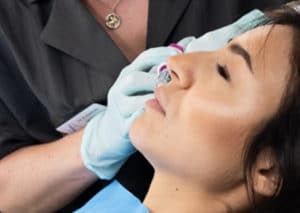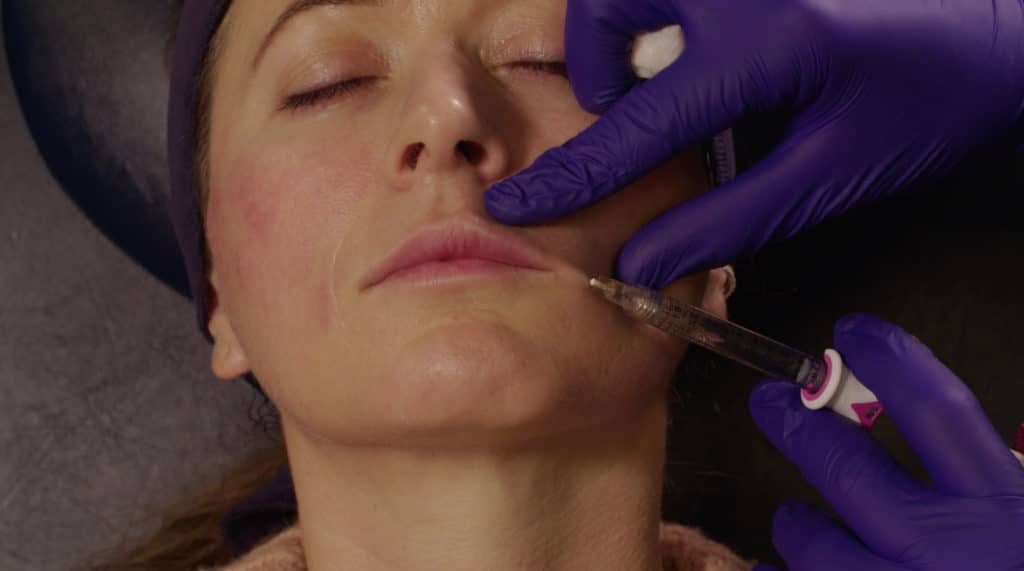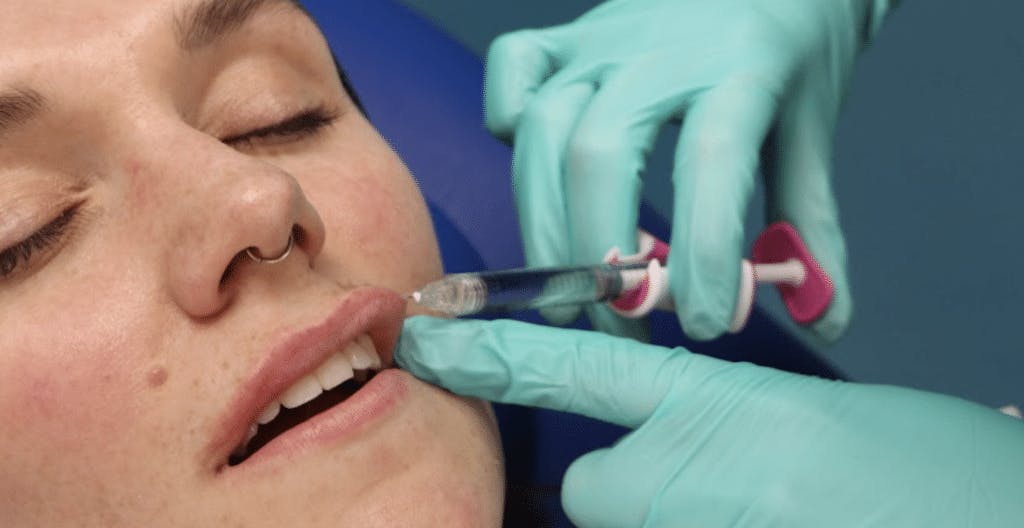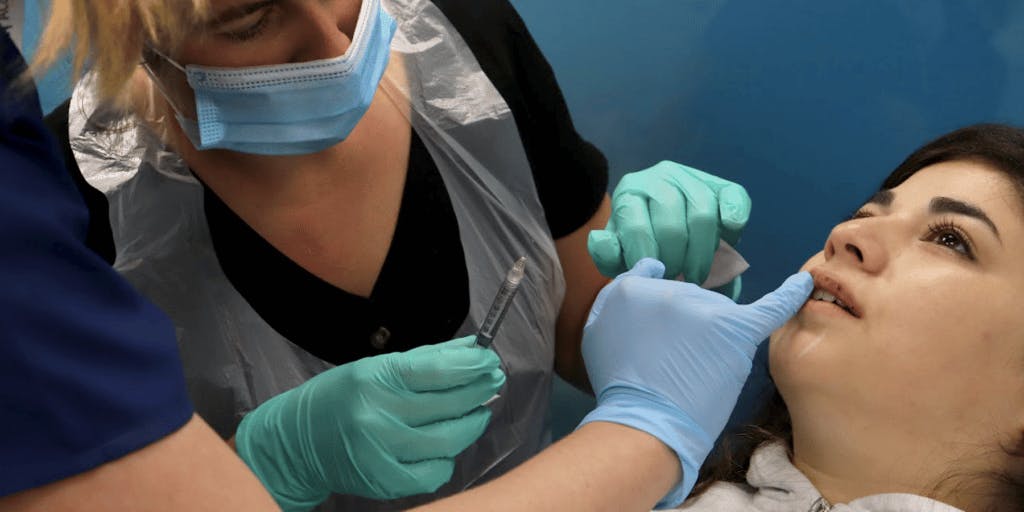Perioral Complications Management

A recent study has evaluated the safety of perioral injectables. Before we look at this and perioral complications management, let’s explore the different types of treatment for this area…

Perioral injectables
Perioral injectables can be broken down into the following treatments:
Botulinum toxin
In specifically selected younger patients, perioral botulinum toxin can be used to manage perioral rhytides, or vertical “smoker’s lines”, as well to pseudo-augment lip eversion and lip surface volume through its action on kinetic muscle.
Dermal fillers
Small amounts of crosslinked, finer hyaluronic acid fillers can be used in the vermillion border of the lip or directly in specific lines to structurally volumise, using needle or cannula techniques.
Skin boosters
Skin boosters can be used to hydrate and stretch fine perioral lines. Improving skin quality, by stimulating collagen and elastin production, is the focus here rather than the deeper, direct revolumisation achieved by dermal fillers.
A notoriously challenging area to treat, perioral rejuvenation is optimally managed with a combined approach. Cosmetic dermatology techniques such as microneedling, chemical peels and laser-based devices can also be employed as part of a bespoke treatment plan.

Adverse reactions
A systematic review of adverse reactions associated with perioral rejuvenation was published in the Journal of Oral and Maxillofacial Surgery.
This 2021 study evaluated “complications and safety associated with different perioral rejuvenation treatments including laser ablation, fat grafting and hyaluronic acid injections”.
The findings showed risk of “mild to moderate” complications in each instance and noted that “severe complications are rare”.
One key takeaway for injectors that the study authors wanted to make clear was to “be mindful of possible complications and able to recognise adverse events so that remedies could be executed with minimal delay. Training and supervision are essential components of ensuring provision of safe aesthetic treatment, and lack of regulation is a concern.”
Regulation of the UK aesthetics industry is something bodies such as the Joint Council of Cosmetic Practitioners (JCCP) are working hard towards improving. Other groups from across non-surgical aesthetics, including a dedicated All-Party Parliamentary Group, and the Advertising Standards Authority (ASA), are also trying to establish safer practices and higher standards for the sector.
Perioral complications management
One area of the industry we, as injectors, can improve straight away is our approach to complications management. After all, knowing how to prevent, identify and treat complications is essential for a safe and ethical medical aesthetics practice.
Being fully educated in facial anatomy, pathophysiological concepts and the complications spectrum is one of the key areas in which medical aesthetics practitioners differ from cosmetic injectors.
As a medical professional, you will be able to spot and understand the difference between side effects and complications; you will be able to offer the appropriate advice and, where appropriate, treatment in each instance, including in critical situations.

Understanding the value of your medical aesthetics training
This aspect of your practice, alongside your injecting skills, is what makes you so valuable to patients. It’s a clear and vital differential when it comes to choosing you over non-medical injectors and is a point that should be clearly communicated to patients.
Have you ever had patients ask why your price is higher than the tweakments they saw advertised on Instagram? This is why. Do not be hesitant in explaining the value of your treatment and the expertise they are getting from you. Whether you’re a cosmetic doctor, dentist, nurse or midwife, you have trained hard for your qualifications. Be proud to tell people about them and why they matter!
Many patients remain unaware of the fact that non-medics are unlikely to have the requisite training to deal with any complications that could arise – nor the medical knowledge to prevent them from happening in the first place. This is not a scare tactic and should never be used as such. However, it’s important to educate patients as to why injectables should always be performed by properly qualified aesthetic medicine professionals.
All information correct at the time of publication. Last fact-checked: 26 January 2023
Download our full prospectus
Browse all our injectables, dermal fillers and cosmetic dermatology courses in one document
By submitting this form, you agree to receive marketing about our products, events, promotions and exclusive content. Consent is not a condition of purchase, and no purchase is necessary. Message frequency varies. View our Privacy Policy and Terms & Conditions
Attend our FREE open evening
If you're not sure which course is right for you, let us help
Join us online or in-person at our free open evening to learn more
Our Partners














STAY INFORMED
Sign up to receive industry news, careers advice, special offers and information on Harley Academy courses and services

